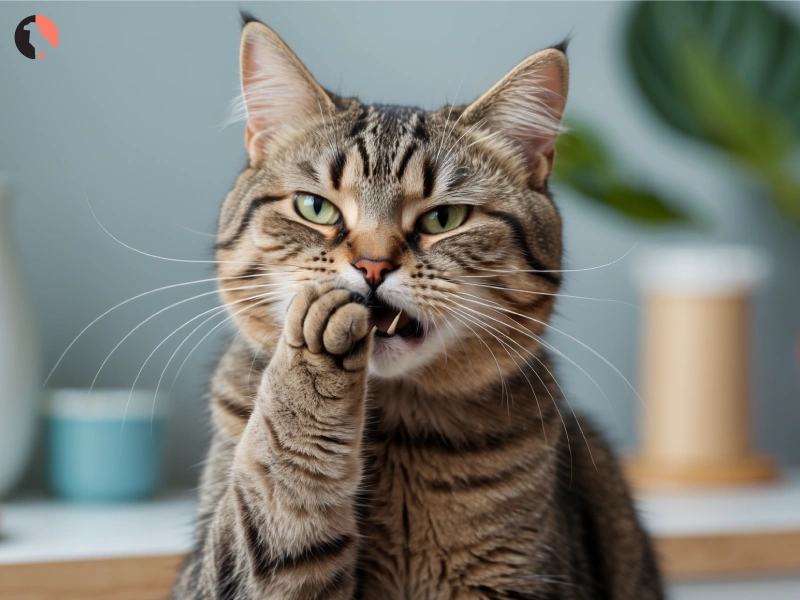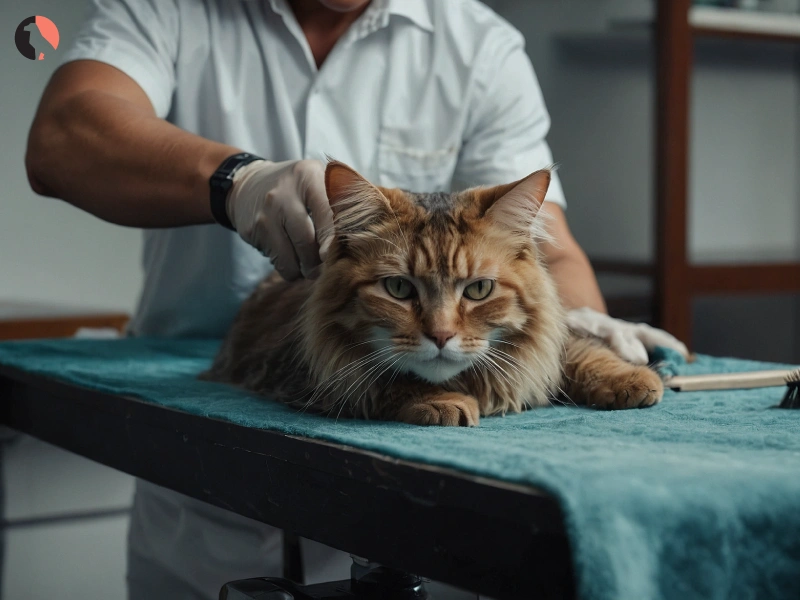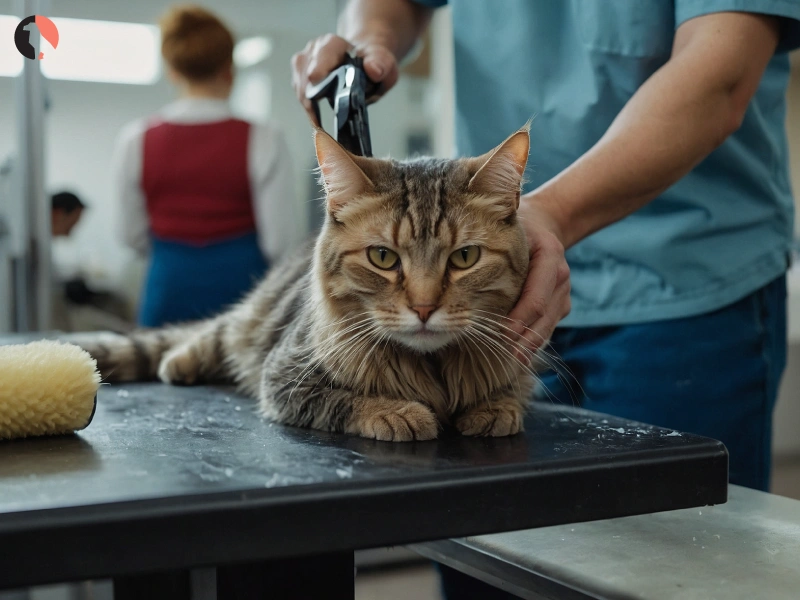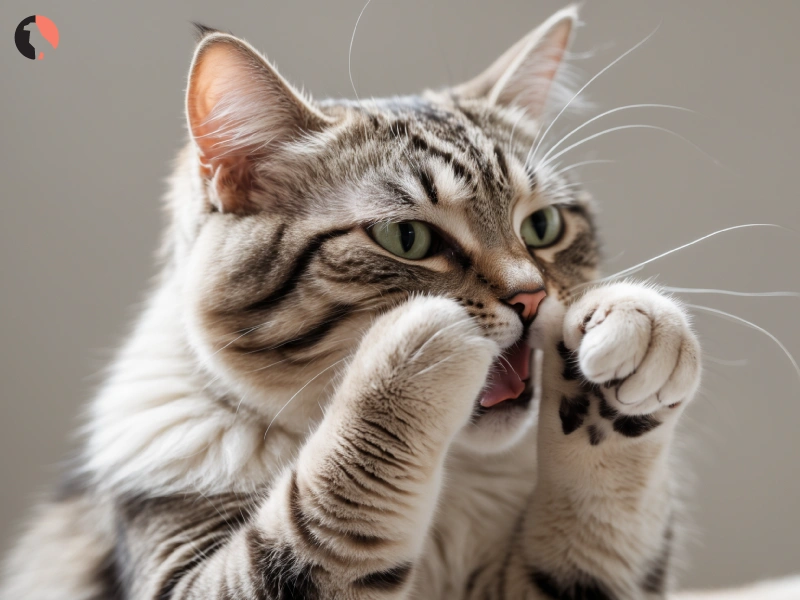If you are an indoor cat owner, you might have observed that cats are neat by nature. They often keep licking themselves to stay clean. But, it leads to a very sensitive issue, ‘cat hairballs’. It appears to be a normal phenomenon. But in fact it’s not. These hairballs cause coughing and sometimes result in digestive problems. Preventing hairballs has become the main concern in these circumstances.
Fortunately, natural remedies are there to control cat hairballs effectively. This blog elaborates in detail on the natural remedies for cat hairballs.
What are Cat Hairballs?
As a cat owner, you might have observed that cats shed fur. However you might not know that the cats ingest this fur. Cat hairballs are these small clusters of fur that your cat swallows during grooming. Finally, these hairballs land in the cat’s stomach, causing digestive problems. Occasionally this fur passes through the digestive tract. But sometimes gets stuck due to a lack of fiber diet and forms hairballs. It becomes essential to address this issue before it gets aggravated.

Why Do Cats Develop Hairballs?
Numerous factors contribute to cat hairballs:
1- Excessive Grooming
2- A Less Fiber diet leads to accumulation in the stomach.
3- Dehydration or dry food results in poor digestion.
4- Other digestive issues restricting the smooth passage of fur.
Natural Remedies for Cat Hairballs
Natural remedies for preventing hairballs involve a few adjustments in lifestyle, careful grooming, and environmental improvements. If your cat is struggling frequently with hairballs, do try the below-mentioned natural remedies to comfort your cat.
1- Add Fiber to The Diet
The fiber content of the diet smoothly keeps moving the ingested hair through the digestive tract. This minimizes the likelihood of the formation of cat hairballs. Add the following fiber to your cat’s diet:

-
Psyllium Husk
Highly effective natural remedy for cat hairball control. It is rich in fiber.
-
Canned Pumpkin
Pumpkin is another rich source of fiber. Add one to two tablespoons of plain canned pumpkin daily for a week.
-
Cat Grass
Different types of cat grass are available for growing indoors for cats to eat. It includes barley grass, oat grass, and wheat grass. The cat eats this grass and intake rich fibers that ultimately remove hairballs.
Visit: Best Natural Antibiotics for Dogs: Safe Alternatives to Medication
2- Adequate Hydration
Adequate hydration ensures good digestion, which ultimately passes on ingested hair naturally.
- Give your cat fresh water daily
- Add water to your cat food to increase fluid intake.
- Better to use a water fountain as encouragement.
- Give your cat wet food, not dry.

3- Regular Grooming
Regular grooming easily removes loose fur. It reduces the amount of fur your cat ingests during her self-grooming. Long-haired breeds need daily grooming, particularly in shedding season.
4-Use Healthy Fats
Fats also play a vital role in lubricating the digestive tract. Fatty Acids: Omega-3 and Omega-6 fatty acids improve skin health and control excessive shedding. Include:
- Coconut Oil
- Salmon Oil
- Olive oil
Click this: Ragdoll: Cat Breed Profile, Characteristics and Care
5-Enrich the Environment
It is the stress that causes a cat to do excessive grooming. Providing an enriched environment like:
- Give different toys to boost your cat’s engagement
- Provide vertical spaces for climbing and playing
- Arrange scratching places to satisfy scratching naturally

6-Herbal Remedies
There are certain herbs that regulate digestion and smoothly pass cat hairballs through the digestive tract. The following herbal remedies play a crucial role in preventing hairballs:
- Marshmallow roots
- Slippery Elm bark
- Aloe vera juices
7- Add Probiotics
Probiotics are good bacteria used to promote digestive health and prevent blockage. Probiotics are available in yogurt, fermented cabbage, and miso (a fermented soybean paste).
Must Check: Ragdoll: Cat Breed Profile, Characteristics and Care
8-Playing Activities
Playing gives your cat an activity to move and remain active. This will improve its gut movement, resulting in smooth passing of hairballs through the digestive tract.

Preventing Hairballs in Cats
It is commonly said that prevention is better than a cure. Preventing the formation of hairballs is the best solution to the problem. It copes with the hairball problem before it arises.
- Diet Modification: It needs to change the dietary habits and lifestyle. Even though your cat is not having an issue with hairballs, even then, add fiber, fats, oils, and probiotics to the cat food. This will help in preventing hairballs.
- Regular Grooming: Make regular grooming your habit to prevent hairballs, particularly when you have a long-haired cat. Daily regular grooming helps you remove loose hair before the cat ingests them. Moreover, put petroleum jelly on your cat’s paws, she will keep licking her paws and ingest lubrication that will keep her digestion smooth.
By consistently following the above tips, there will be less likelihood that your cat will face the problem of hairballs. But be vigilant and proactive with any sort of distress or unusual activity by your cat. If so, immediately consult your vet.
Must Visit: Top Pet Names for Siamese Cats in 2025
Cat with Hairballs Naturally
Hairballs are common but must not be taken lightly. It is highly friendly and effective to tackle cat hairballs with natural remedies. This proactive approach is very simple. By preventing hairballs beforehand, you save yourself and your cat from further complications. This ensures your cat’s good health and comfort. The natural remedies for preventing hairballs are available in every house, like hydration, a fiber diet, and regular grooming.
